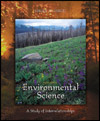 |  Environmental Science: A Study of Interrelationships, 8/e Eldon Enger,
Delta College
Bradley F. Smith,
Western Washington University
Solid Waste Management and Disposal
Chapter ObjectivesAfter reading this chapter, you should be able to:
| Explain why solid waste has become a problem throughout the world. |
 |  |  | | Understand that the management of municipal solid waste is directly affected by economics, changes in technology, and citizen awareness and involvement. |
 |  |  | | Recognize that the management of municipal solid waste in the future will require an integrated approach. |
 |  |  | | Describe the various methods of waste disposal and the problems associated with each method. |
 |  |  | | Understand the difficulties in developing new municipal landfills. |
 |  |  | | Define the problems associated with incineration as a method of waste disposal. |
 |  |  | | Describe some methods of source reduction. |
 |  |  | | Describe composting and how it fits into solid waste disposal. |
 |  |  | | List some benefits and drawbacks of recycling. |
|



 2002 McGraw-Hill Higher Education
2002 McGraw-Hill Higher Education